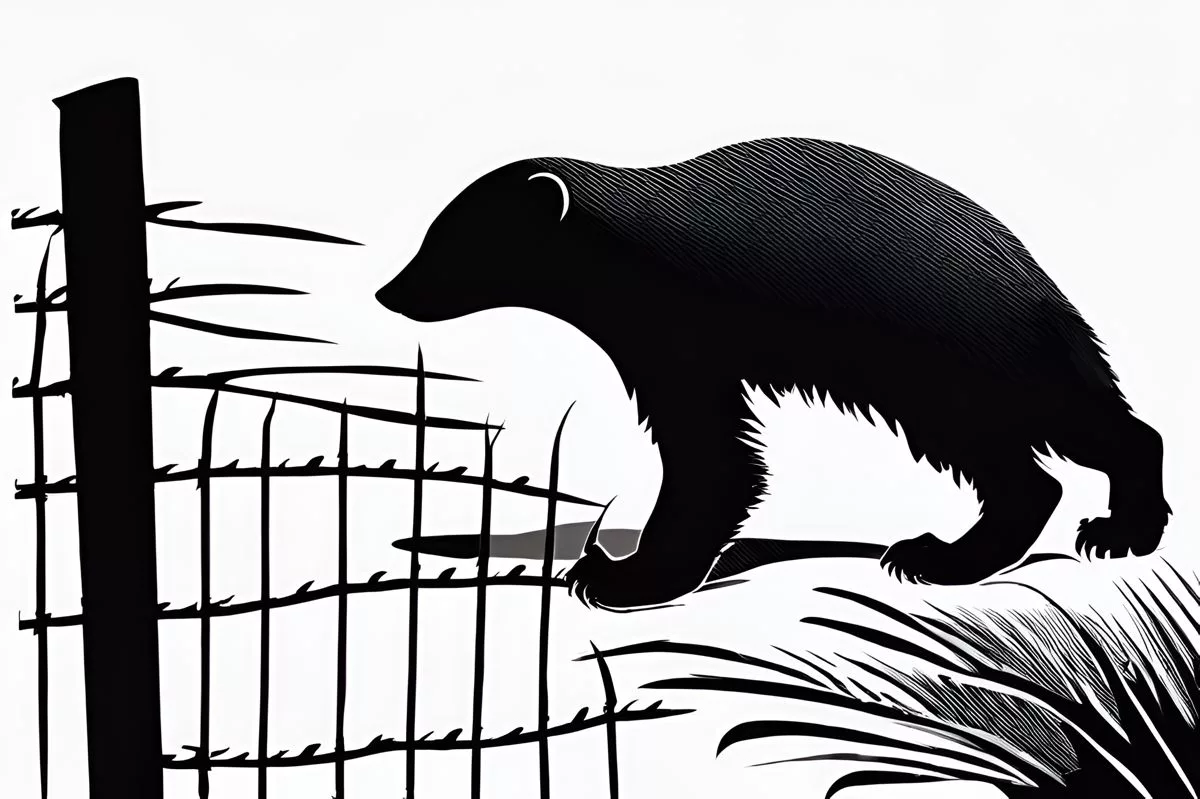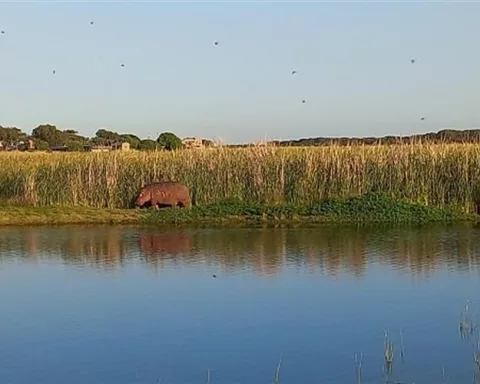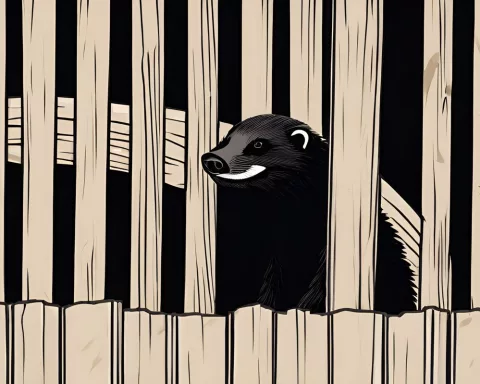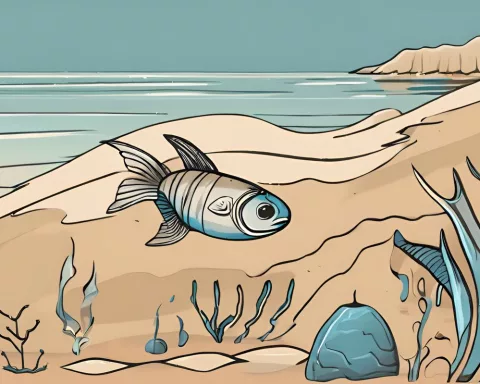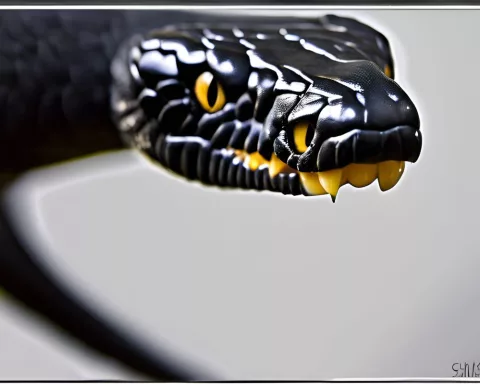In the tranquil De Hoop Nature Reserve, conservationists Christina Hagen and Katta Ludynia discovered the lifeless bodies of 11 African penguins, victims of a honey badger attack. Despite this tragedy, the conservation team quickly sought advice and devised new safety measures to protect the penguin colony and prevent future attacks. The African penguin population is critically low, but with the dedication of organizations like CapeNature and BirdLife South Africa, there is hope for the survival of this extraordinary species.
Uncovering the Disturbing Scene
During a standard patrol, two committed seabird conservationists stumbled upon the lifeless bodies of 11 African penguins at the De Hoop Nature Reserve. The honey badger, previously not recognized as a danger, had skillfully evaded the protective fence built to guard the penguins from acknowledged threats.
In the tranquil solace of the recently established De Hoop Nature Reserve in Western Cape, an unusual calamity occurred. The antagonist of this shocking incident was the honey badger, famed for its fearless tenacity and sharp intellect. The victims: 11 African penguins, a species teetering on the brink of survival. This startling event has sent shockwaves through the conservation community, sparking a heightened sense of urgency and a reinforced commitment to protecting these vulnerable birds.
Uncovering the Disturbing Scene
The grim aftermath was stumbled upon not by a ranger or a visitor, but by two committed seabird conservationists, Christina Hagen and Katta Ludynia. During their standard patrol, they encountered a horrifying sight: the lifeless bodies of the penguins, whose lives were abruptly and tragically cut short. Hagen, who works as the Pamela Isdell Fellow of Penguin Conservation at BirdLife South Africa, expressed her shock at the gruesome scene.
The honey badger, a predator previously not recognized as a danger to the penguin colony, had skillfully evaded the meticulously erected protective fence. This defense structure, built to guard the penguins from acknowledged threats like leopards and caracals, was no match for the relentless badger. The defenseless birds, unfamiliar with terrestrial dangers, quickly became easy targets.
The Aftermath: A Resilient Response
Despite the traumatizing incident, it did not discourage the determined conservation team. Instead, it galvanized them towards immediate action. The team quickly began improving the safety precautions, seeking advice from various experts on predator control strategies. They fortified susceptible areas in the fence and devised potential deterrent methods, including the use of lights or scent markers to ward off honey badgers and other potential predators.
This unfortunate incident, while dismaying, is not entirely uncommon in the initial phases of establishing a penguin colony. Other colonies, like the Stony Point congregation in Betty’s Bay, have faced similar challenges. Today, this colony is one of the largest in South Africa, a tribute to the tenacity of the African penguin and the unwavering commitment of its human guardians.
The Promise for Tomorrow
Despite the distressing event at De Hoop, the colony has witnessed the reintroduction of over 200 penguins into their natural habitat after being hand-reared at Sanccob. This serves as a light in the often bleak journey of conserving the endangered African penguin.
The African penguin population is critically low, necessitating the establishment of new colonies for their survival. Organizations such as CapeNature, BirdLife South Africa, and Sanccob continue to work tirelessly towards this goal, contributing to the long-term survival of this extraordinary species. The honey badger incident, while heartbreaking, highlights the unforeseen challenges encountered in conservation efforts. However, it also emphasizes the unwavering dedication of those working tirelessly to safeguard and preserve the African penguin. The future of this species may be uncertain, but with such resolute defenders, there is undoubtedly a glimmer of hope.
What happened to the African penguins at De Hoop Nature Reserve?
11 African penguins were found lifeless at De Hoop Nature Reserve, victims of a honey badger attack. The honey badger had evaded the protective fence built to guard the penguins from acknowledged threats.
Who discovered the lifeless bodies of the penguins?
The lifeless bodies of the penguins were discovered by two seabird conservationists, Christina Hagen and Katta Ludynia, during their standard patrol.
What did the conservation team do after the honey badger attack?
The conservation team quickly sought advice and devised new safety measures to protect the penguin colony and prevent future attacks. They fortified susceptible areas in the fence and devised potential deterrent methods.
Is this kind of event uncommon in establishing a penguin colony?
No, this kind of event is not entirely uncommon in the initial phases of establishing a penguin colony. Other colonies have faced similar challenges.
How is the African penguin population doing?
The African penguin population is critically low, necessitating the establishment of new colonies for their survival. Organizations such as CapeNature, BirdLife South Africa, and Sanccob continue to work towards this goal.
Is there hope for the survival of the African penguin?
Yes, there is hope for the survival of the African penguin. Despite the challenges, organizations are dedicated to preserving the species. The reintroduction of over 200 penguins into their natural habitat after being hand-reared at Sanccob serves as a light in the often bleak journey of conserving the endangered African penguin.

